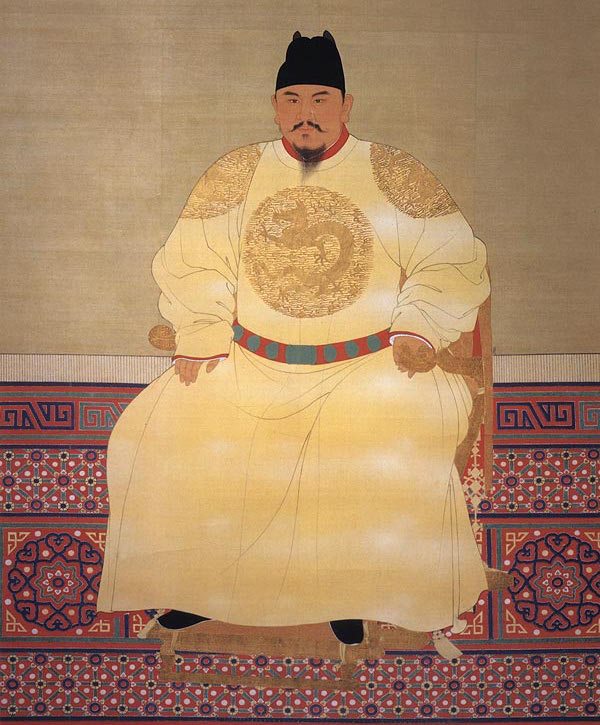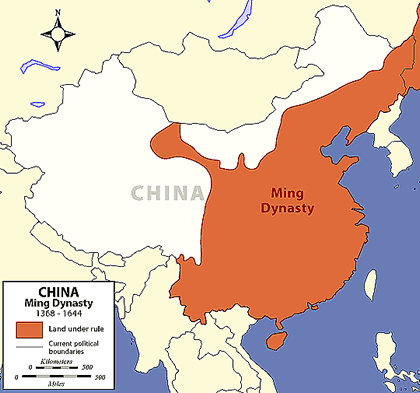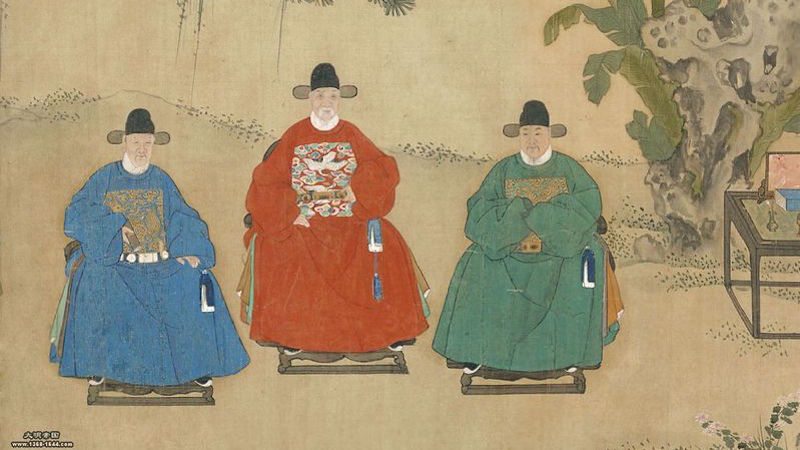Ming Dynasty
Episode #6 of the course “Most powerful families in history”
Fractured Mongol leadership made for constant war in the northern lands of China, and in 1368 the Mongols were finally pushed north. Meanwhile, in the heart of China, Zhu Yuanzhang had overcome his beginnings a poor man and Buddhist monk and had risen through military ranks, eliminating his Yuan and Han rivals and capturing the capital city of Beijing. Yuanzhang declared himself Emperor, calling the dynasty he founded “Ming,” which means “bright.”
 Portrait of the Hongwu Emperor, Zhu Yuanzhang
Portrait of the Hongwu Emperor, Zhu Yuanzhang
The Ming dynasty continued to hold power throughout China for nearly 300 years. It is one of the most peaceful times in China’s history, but it’s also one of the most oppressive and restrictive eras for its people. During this time, art and architecture were strictly regulated, a religion-based law system dictated government and civil behaviors, and power was limited, placing most of it with the Emperor. Ming dynasty art is now some of the most highly prized, fetching hundreds of thousands of dollars at auctions around the world.
During these centuries, Chinese engineering and sciences advanced. The Ming dynasty admiral Zheng He sailed the coast of Africa, and traders established the infamous Silk Road that supplied Chinese goods to Europe. It was via the Silk Road that gunpowder was first introduced to the West.
 Ming Dynasty
Ming Dynasty
Invasion and attacks from the Mongols in the north were nearly constant. China was able to hold and expand its lands in the north, largely thanks to the enhancement of a centuries-old wall that is now known as the Great Wall of China. However, Ming dynasty emperors never successfully expanded their land holdings in the south, and they suffered many casualties from aggressions by Japan in the east. The Manchu began to threaten northeastern territories, and after a severe military loss and abandonment from his advisors, the last Ming Emperor, Chongzhen, committed suicide in 1644, resulting in the founding of the Qing dynasty.
Share with friends

